Crafting a resignation letter can be a challenging yet liberating task, especially when your decision stems from philosophical differences within your workplace. It's essential to express your feelings with clarity and professionalism, ensuring you maintain a positive tone while communicating your reason for departure. By outlining your beliefs and the misalignment you've experienced, you can leave on amicable terms, fostering goodwill for potential future interactions. If you're curious about how to articulate your sentiments effectively in such a letter, keep reading for a helpful template you can adapt to your situation.

Professional tone
Resignation from a position often arises from various factors, including philosophical differences regarding company values or practices. An individual may choose to resign when core beliefs no longer align with the organization's mission, leading to discomfort in the workplace environment. This situation occurs frequently in fast-paced industries, such as technology or finance, where rapidly changing strategies may conflict with personal ethics. It is essential to handle the resignation process professionally, providing adequate notice, and expressing gratitude for experiences gained within the role. Clear communication about the reasons for departure fosters understanding and maintains professional relationships for future networking opportunities.
Clear statement of resignation
Resignation from position stems from philosophical differences. Personal beliefs and organizational values no longer align. Respectful acknowledgment of the company's contributions. Gratitude for professional growth opportunities. Effective resignation date specifies one month from submission. Desire for a smooth transition expresses willingness to assist in the handover process.
Mention philosophical differences
Philosophical differences can profoundly impact workplace harmony and morale. Employees often find themselves torn between personal beliefs and organizational values. For instance, an employee may prioritize sustainability and ethical practices, while a company might focus primarily on profit maximization, leading to a fundamental disconnect. Values such as integrity, responsibility, and community involvement can clash with corporate goals driven solely by financial gains. When contrasting philosophies create an environment where an individual's principles are consistently challenged or overlooked, it may ultimately lead to a decision to resign in order to seek alignment with a more compatible organization.
Express gratitude
Philosophical differences can significantly impact workplace harmony and personal fulfillment. When individuals find themselves at odds with the core values or beliefs prevalent within their organization, such as ethical considerations or company culture, it often leads to a sense of disconnection. Gratitude remains essential during this transition; acknowledging opportunities for growth, development, and camaraderie fosters goodwill. Ensuring a smooth departure, while maintaining relationships with colleagues, is vital. It creates an environment where both parties can reflect positively on the experience, leaving the door open for potential future collaboration or interaction.
Offer transition support
Resignation due to philosophical differences often stems from fundamental discord between personal values and organizational practices, particularly in workplaces like tech startups or non-profit organizations. Employees may find it increasingly challenging to align their ethical beliefs with company goals, leading to dissatisfaction. Volunteering transition support, such as training a successor or documenting processes, can enhance a collaborative atmosphere and ease the workflow for remaining team members. By fostering open communication and understanding, the resignation process can become a constructive experience for both parties.

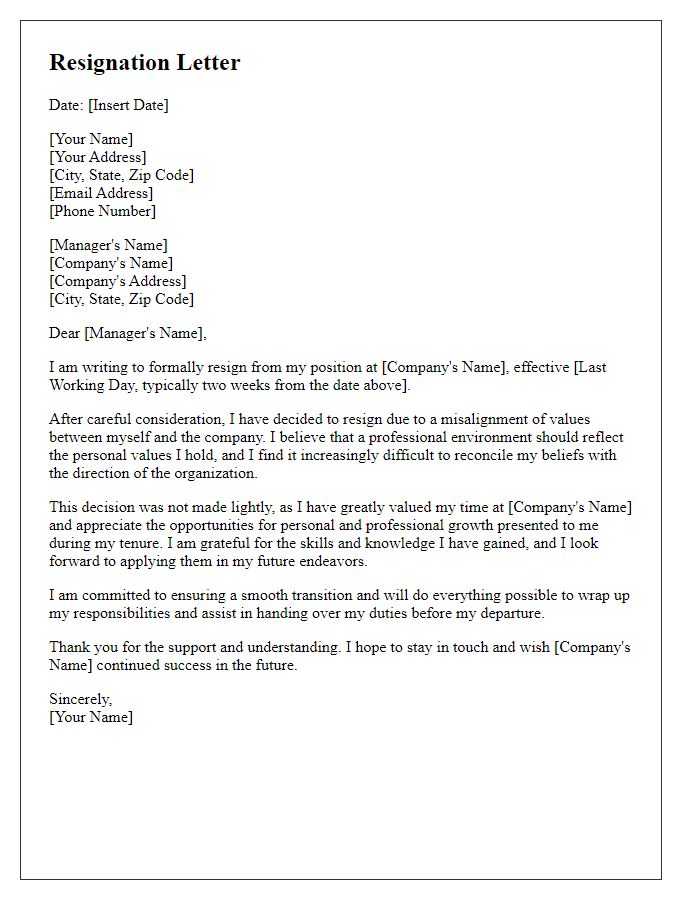
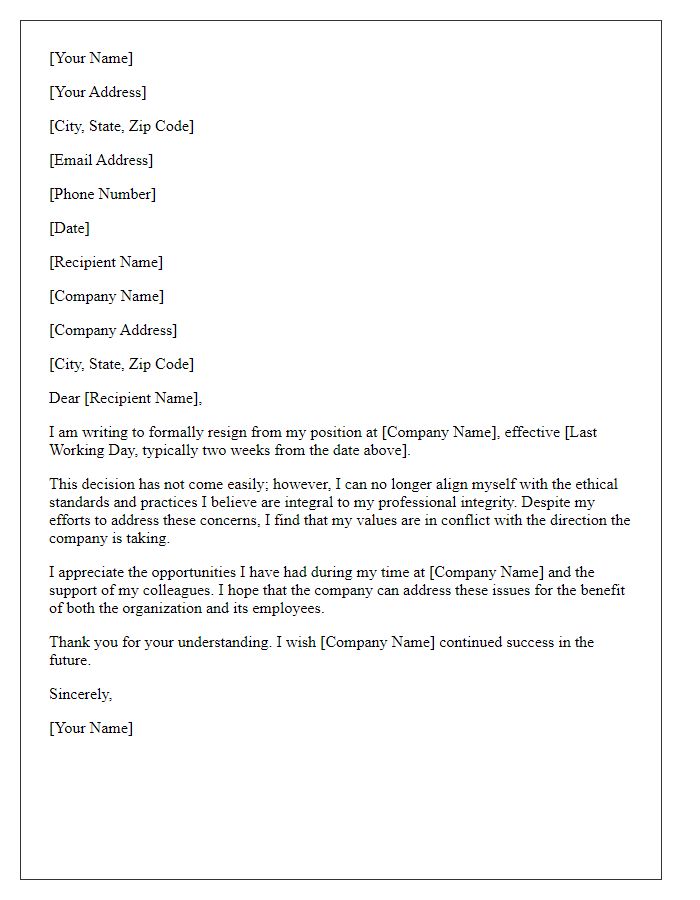
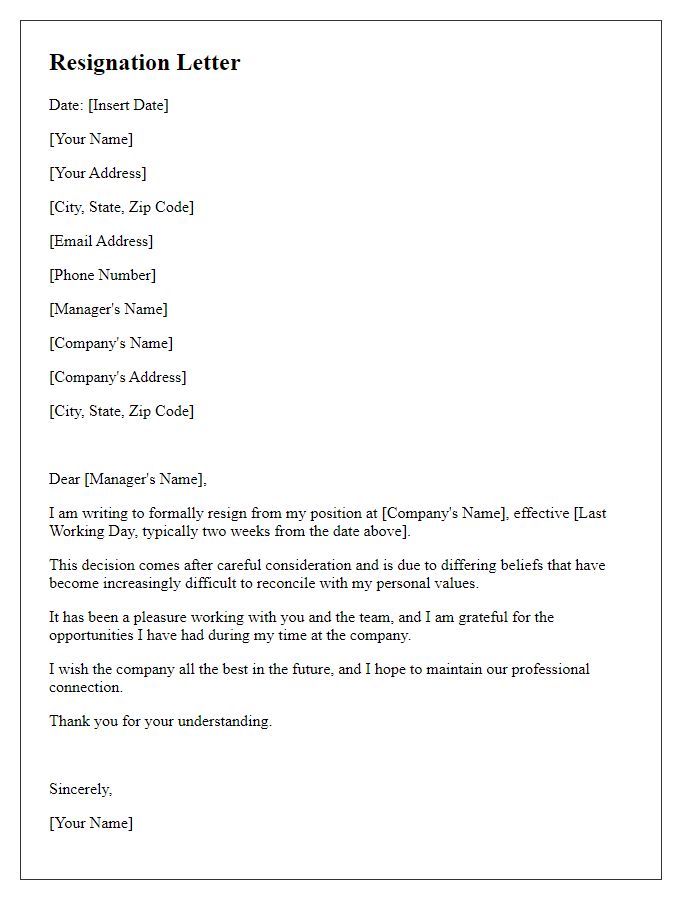
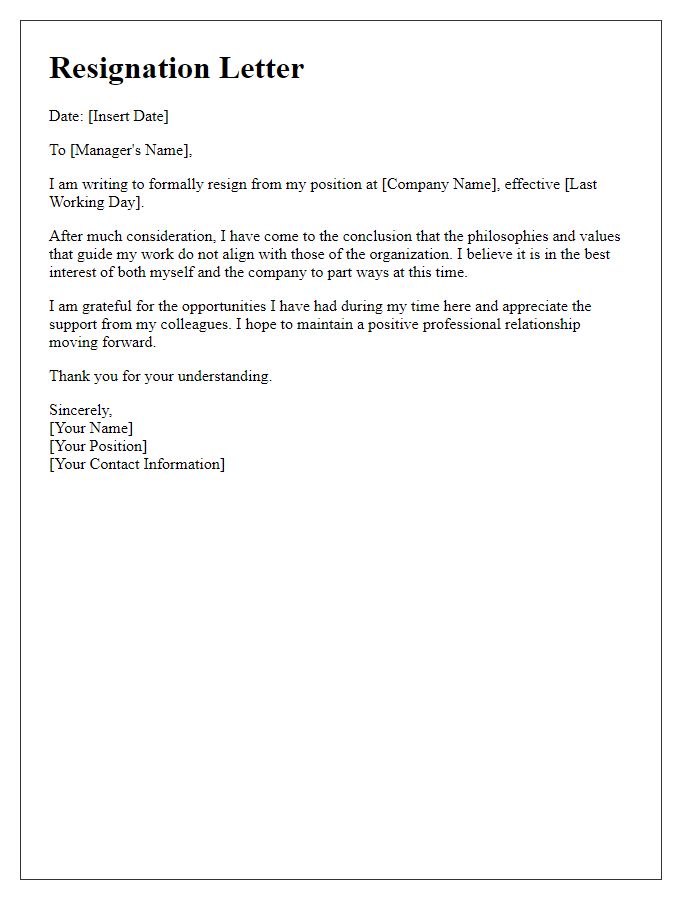
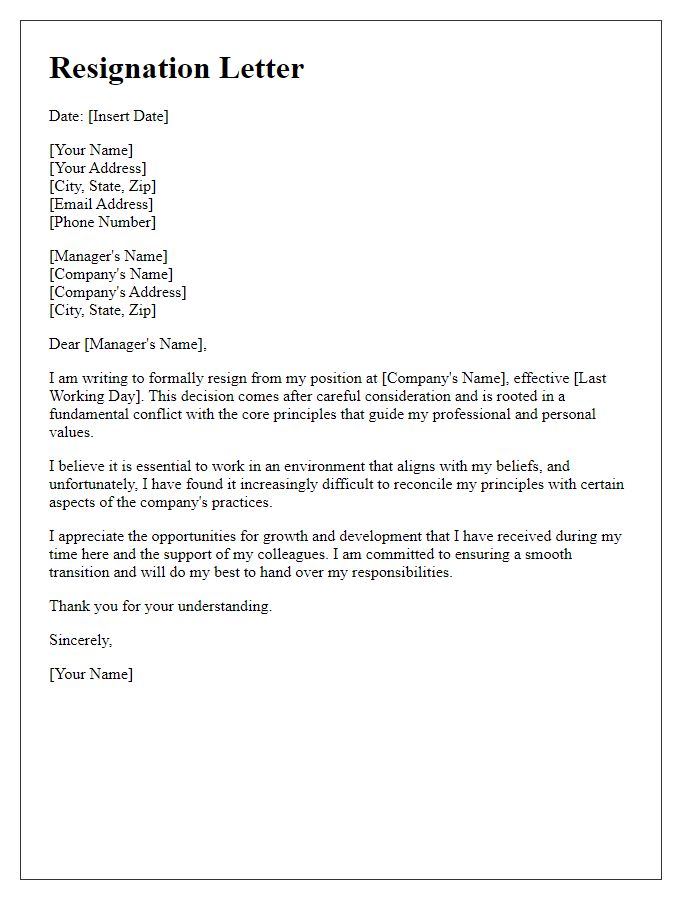
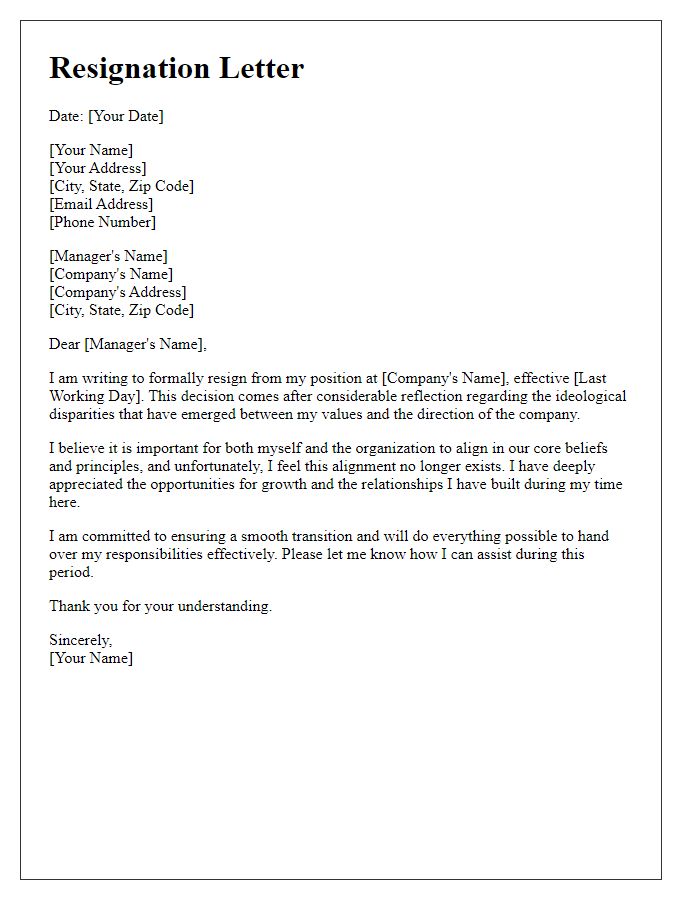
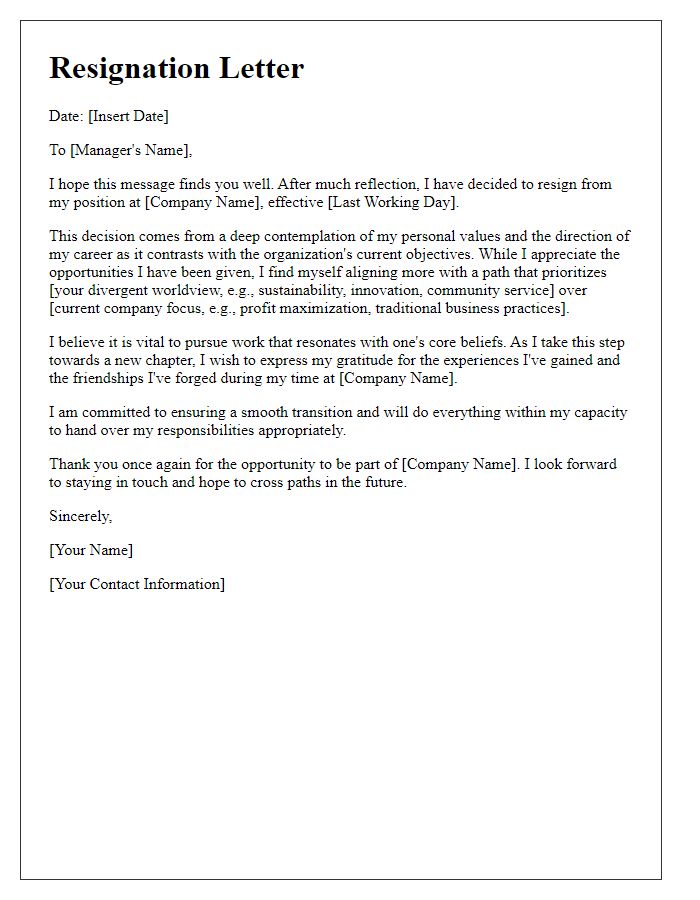
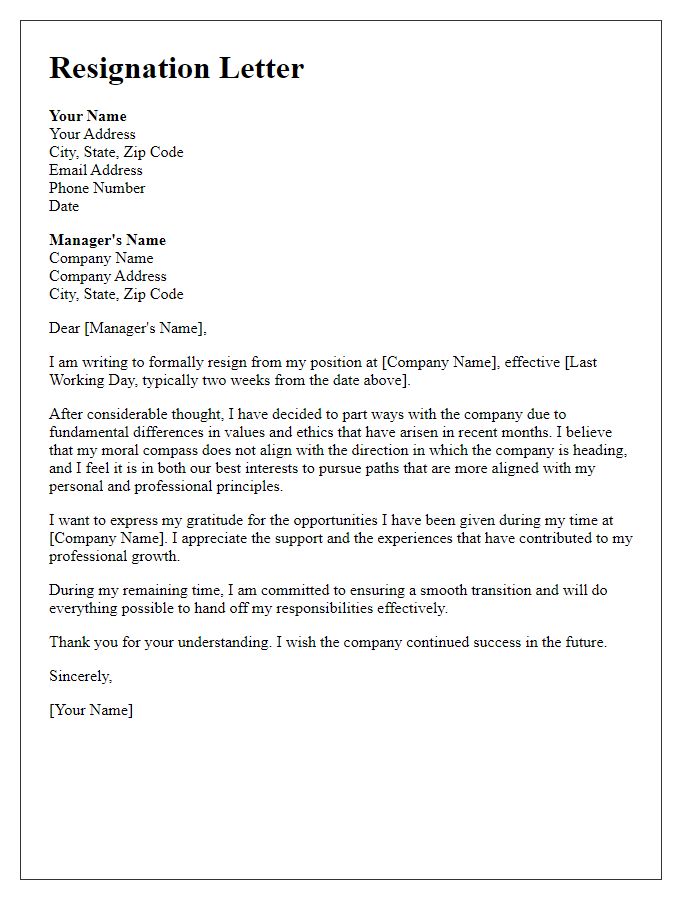
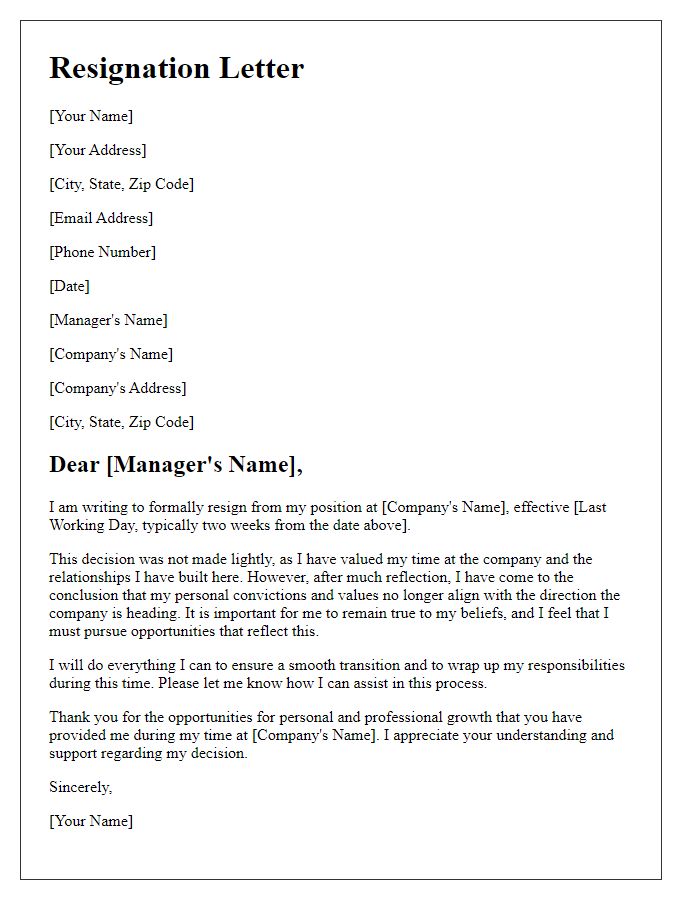
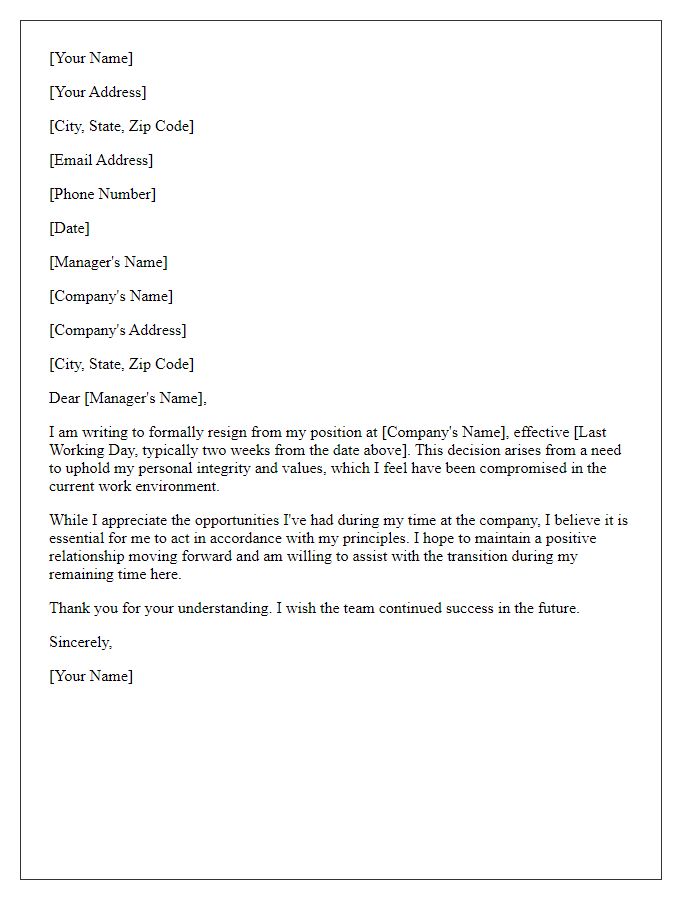


Comments